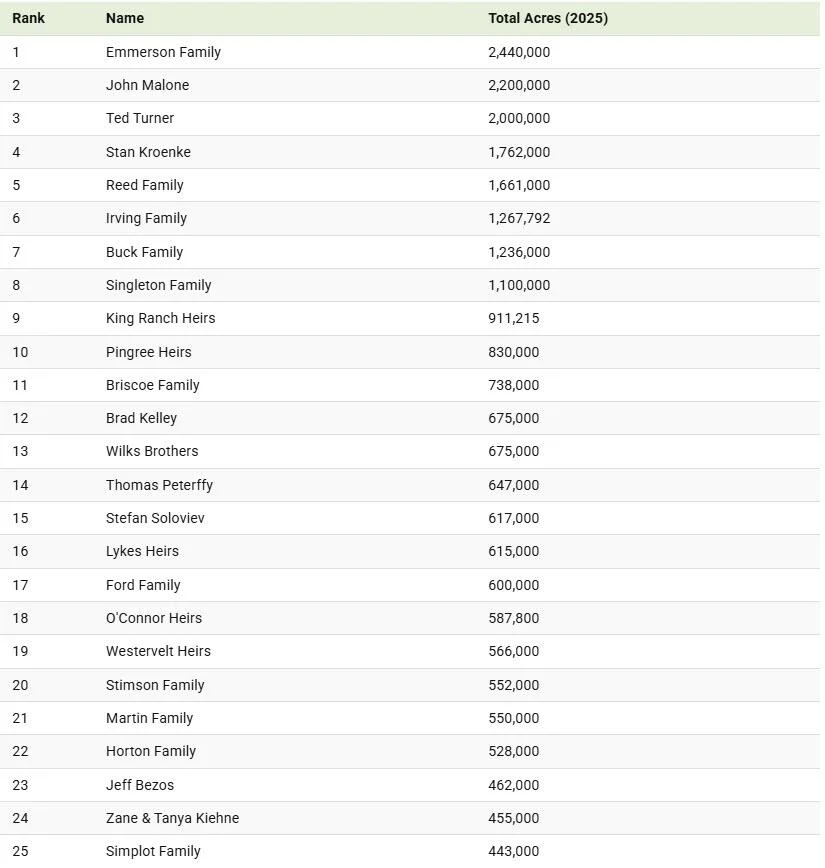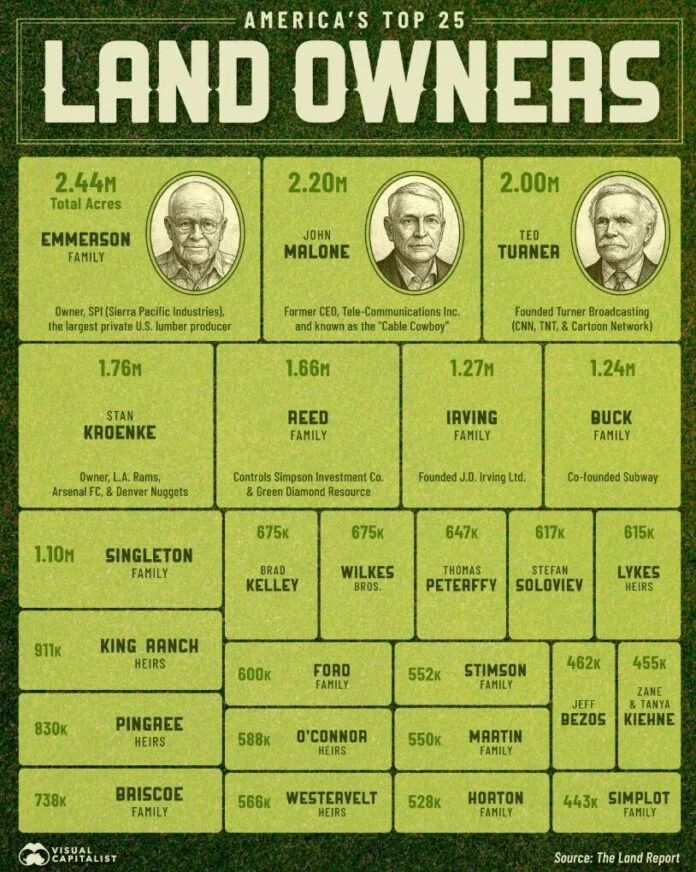While the U.S. boasts vast public national parks, a select group of families and entrepreneurs controls land that rivals the size of some states.
An infographic by Visual Capitalist’s Niccolo Conte highlights America’s 25 largest private landowners in 2025, illustrating the concentration of land ownership in the country.
Timber Kings Still Rule the Landowner List
Red Emmerson and his family command 2.44 million acres across California, Oregon, and Washington, making them the largest private landowners in America as of 2025. To put that in perspective, their land is over three times the size of Rhode Island.
Among the top five landowners—Emmerson, Malone, and the Reed family—three have built or expanded their holdings through commercial forestry. Timberland provides steady cash flow, long-term capital appreciation, and valuable carbon-offset potential, which explains Wall Street’s renewed interest in forests.
These vast tracts also offer biodiversity leverage and a hedge against inflation, making timberland an appealing multigenerational asset.

Ranching Dynasties Hold Their Ground
Names like Ted Turner (founder of Turner Broadcasting), Stan Kroenke (owner of the LA Rams and Denver Nuggets), and King Ranch have become synonymous with American ranching. While cattle remain central, many of these families have diversified into hunting leases, wind-energy easements, and conservation tourism.
For instance, Ted Turner manages the world’s largest private bison herd across 45,000 of his 2 million acres, while the Kroenke and Briscoe estates extend from the Great Plains to the Rockies.
Tech Moguls Join the U.S. Landowning Elite
The 2025 rankings also include several self-made billionaires from outside the natural-resource sectors. Jeff Bezos owns more than 460,000 acres in West Texas, where Blue Origin conducts rocket tests alongside active ranching. Thomas Peterffy, a digital-trading pioneer, has quietly amassed 647,000 acres, making him Florida’s largest landowner.
Notably, Bill Gates (#43) is the largest farmland owner in the U.S., with 270,000 acres. The presence of these tech moguls reflects a broader trend: tech fortunes are increasingly seeking refuge—and strategic opportunities—in hard assets like land, driven by climate concerns, privacy, and long-term stewardship motives.

